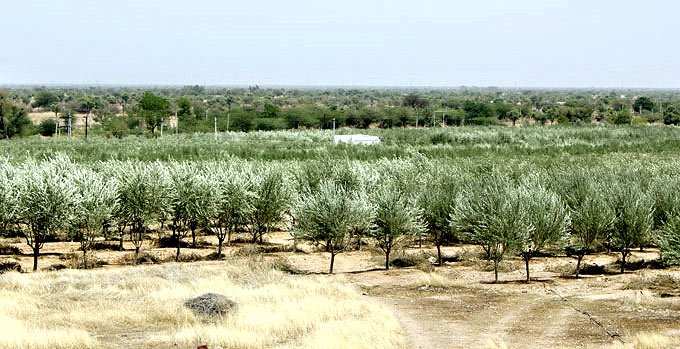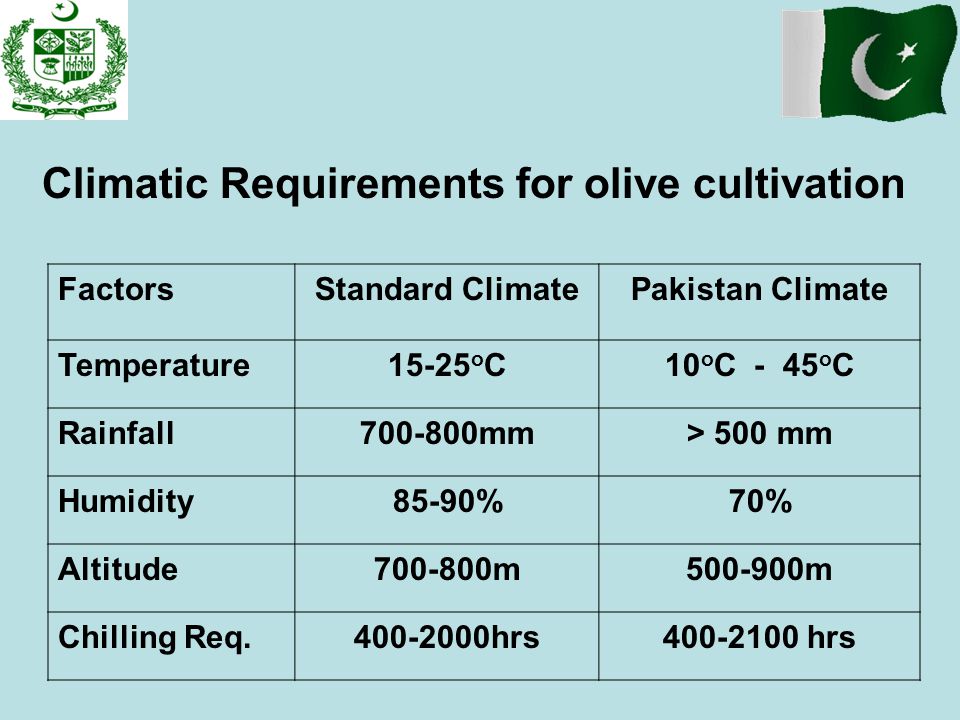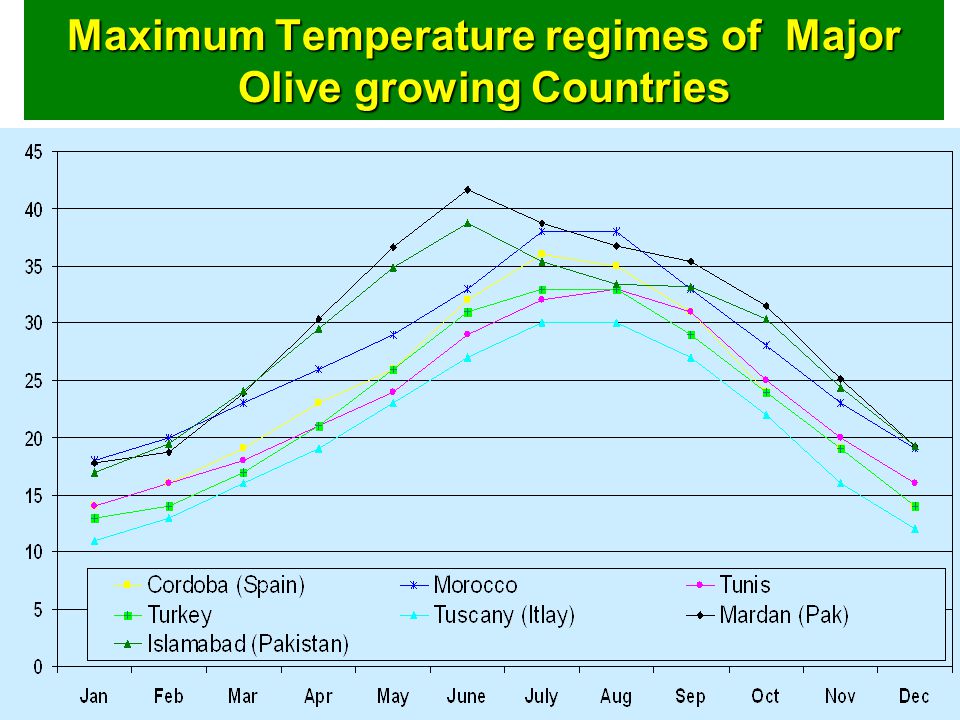How to Start Olive Farming (Fruit Cultivation) in Pakistan
Olive oil is an expensive item and is used by the people who are health and hygiene conscious. Beside this it is also used in different cosmetics and for massage purposes. Initially only imported olive oil and olive products were available in local market but now local companies / farmers have started producing Oil and other products in Pakistan. Now olive farmers can sell their yield in local market to manufacturer and olive exporters as well. The Barani Agriculture Research Institute (BARI) located in Punjab’s Chakwal district, has already planted 473,265 olive trees in the region so far. The BARI reveals that the massive Olive Valley Project is not only providing olive saplings to local farmers, but also technical support on olive grove management and financial support for water resource development and drip irrigation.
Pakistan is a country conducive to small scale farming where olive cultivation provides an opportunity for enhancing income of under privileged. Olive cultivation is an upcoming opportunity in Pakistan since it requires very less water as compared to other crops. Beside this it can be cultivated on barren land which is normally un-utilized. It can play a major role in the economy of country as the price of olives is high in market. Fruiting age of Olive plants is about 250 years and a great immune power of plants which help to survive with less water and cold weather.
Since the olive sector in Pakistan is not highly developed, there are great variations in the production and consumption cycle of olive oil and its by products. The production is especially dependent upon the natural environment and weather. Similarly, the consumption cycle is determined by the price and availability. Due to these reasons it is difficult to forecast the actual requirements for olives. Similarly, appropriate infrastructure, processing facilities and transportation also plays an important role in the marketing and profitability of olive fruits and its bi-products. Focus on healthy and certified cuttings/ bulbs, land preparation, sowing pattern, water management, fertilizer application, hiring of skilled personal, pest management, and varieties along with marketing is required to run business successfully.
The Olive cultivation business can be started at any capacity but due to its economic commercial viability the proposed project is designed as olive farming, spreading over a land area of 50 acres. The cuttings of olive / plants would be purchased from local private nurseries, agriculture research centres and agriculture extension departments and raised in conventional farming system. Olive plant is drought tolerant, therefore, the water requirement is much lower than apple, peaches and apricots and closer to almonds, pomegranates and grapes. Olive plantation may come as a boon for farmers in Barani areas. The wild trees in government owned forests should be grafted with European-type olive varieties in Pakistan.
The target market for the Olive Farm is local. Major buyers and processors of the olive are in larger cities such as Karachi, Lahore and Islamabad whereas; other potential areas of the country can also be targeted upon demand. In addition to local markets an enormous export market for the olive oil and its byproducts exists in Europe, USA, Middle East, etc.
Areas Suitable for Olive Farming in Pakistan
The wild species of olive are found abundantly in different parts of the country particularly in the provinces of Punjab, KPK and Balochistan which indicate that improved varieties can also be grown successfully. The survey of potential areas of Pakistan with suitable ecology for olive cultivation indicates that olive can successfully be grown in Islamabad, Rawalpindi, Chakwal, Gujrat, Jehlum, Sialkot, Narrowal, Khushab, Mianwali, Swat, Dir, Malakand, Loralai, Zhob, Barkhan, Mastung, Khuzdar, Quetta, etc., with suitable management practices. Improved varieties of olive imported from Italy have been planted in Swat, Dir, Malakand, Loralai and Islamabad. In addition to Italian cultivars, four Turkish olive cultivars were also introduced and planted in Islamabad for evaluation studies. Some of these cultivars have shown good performance and giving good yield in Baluchistan and Islamabad.
Olive Farm Management
Olive fruit production in Pakistan is not an organized sector so there is need to understand its technical parameters which are explained below.
Plantation & Growth Requirements
Olive plants show its growth well on poor soils even without fertilizer. It can also thrive in rocky and shallow soils. There are few essential requirements for healthy growth of plants. Following are the requirements:
- Hot dry summer
- Being successfully grown under rain fed conditions (200-900 mm annual rainfall)
- Winter chilling requirement (150-300 hours at temperature below 7°C)
- Flowering temperature 25°- 30°C (March)
- Varieties vary in temperature requirement
- Italian – most cold tolerant (-8°C)
- North African (Moroccan & Tunisian) most tolerant to high temperature (36°- 41°C)
- Variety of soil type (from sandy to clay) best soil light well drained
Planting an Olive Tree
It is very important to grow the olive plants according to recommended standards as it affects the fruit bearing capacity of the plants. Plants should be planted in square system and distance should be 20×20 feet between the plants on the plain land and on sloppy land it may not be less the 15×15 feet.
- Layout: Square system;
- Planting Distance: 20×20 feet (in plain lands), 15×15 feet (in slopes or hilly areas);
- Pit Digging: The measurement of pit should be 1m3 (3x3x3 feet);
- Pit Filling: Pit must be filled by a homogenous mixture of soil, silt and FYM with the ratio 1:1:1. 2-3 irrigation must be applied for proper decay of FYM;
- Plating of olive trees can be done in two seasons: spring and autumn. Spring planting should be preferred because of provision of longer growth period.
The distance between the plants is 20 X 20 feet and the space between the plants can be utilized for cultivation of other crops for initial six to ten years of age of the plants. However, it is recommended that such crops should be cultivated between the plants which have low height and require less irrigation.
Fertilizers on Production
Using fertilizers containing Nitrogen, Phosphorus and Potash, the yield of the crop can be maximized. Proper fertilizer application plays vital role in good growth and optimum fruit yield. Proper combination of FYM, Phosphorus, Potassium and Nitrogen provided balanced nutrients to fulfill needs of developing and mature fruiting trees.
- Fertilizers of all kinds are available locally.
- Pesticides of different natures are also available locally.
- Water is available from canal or can be used from peter engine.
Irrigation depends on following three factors:
- Age of plant
- Soil texture and structure
- Temperature and rainfall
Young plants require regular irrigation for three years, however, for bearing plants three to four irrigation / year are required. Olive Plant is drought resistant but for commercial cultivation regular irrigation is necessary.
From where these plants and their regarding information can be obtained ?
Investment Required for Olive Farming in Pakistan
Growing Olive trees is a profitable business and olive trees have more than 250 years of life and it can grow on barren lands. On an average an olive plant produces 20 to 35 kg of olive fruits per year which contain more than 20 % of oil contents. The olive fruit can be sold out in the market at the rate of Rs. 100/- to Rs. 200/- per kg and extracted oil can be sold at the rate of Rs. 700/- to Rs. 3,000/- per liter based on the oil variety and purity. Growing Olive in 50 acres with modern farm management techniques can be a long lasting business. It is recommended that land should be purchased in the suggested rural areas.































